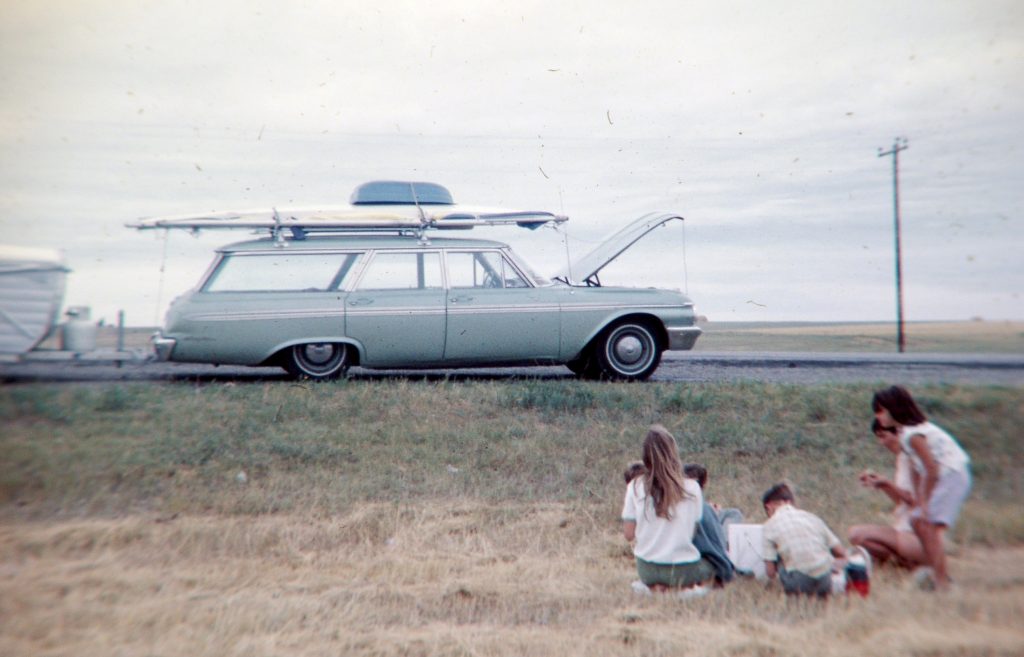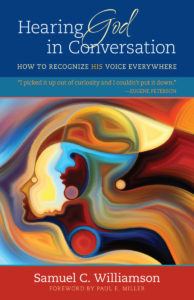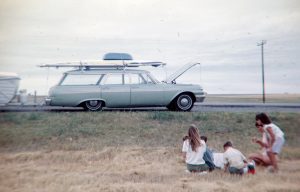“My wife’s ninety-year-old mother died last Thursday and we mourn. Someone reminded me that when we grieve, “we do not grieve like those who have no hope.”
I grew up in a family that camped. My father was a pastor who got four weeks of vacation. We took all four weeks at once, camping the whole month of July, mostly in wooded campsites next to windy lakes. We hauled a small Sunfish sailboat on top of our sagging station wagon.

Those vacations were a young boy’s fantasy, filled with mysterious forests and stormy seas. Four weeks wasn’t enough. We carried our home wherever we went. It was often hot, but sometimes cold, and occasionally rainy. The car always broke down. And I loved it.
I recently heard a quote from the Epistle to Diognetus that resurfaced all those old memories,
The difference between Christians and the rest of mankind is not a matter of nationality, language, or customs. Christians do not live apart in separate cities, speak any special dialect, nor practice any eccentric way of life…
For them, any foreign country is a motherland, and any motherland is a foreign country.
Home Away from Home
Sure, camping could be uncomfortable. The pop-up trailer served as our kitchen, dining room, living room, and four bedrooms, yet this flimsy, moveable home was tinier than the smallest bedroom in our solid brick house.
Discomfort was part of the fun. When something went wrong—and the tent loved to leak, the stove hated to be lit, and our car was addicted to breakdowns—it was part of the adventure, a Fine And Pleasant Misery.
But last week, all three of our cars had problems (a faulty transmission, a gas leak, and a misfiring engine). I was frustrated. Life isn’t supposed to be difficult. It should work.
But should life work the way I expect it to? It hasn’t for the forty-odd years of my life. (Only forty of my fifty-nine years have been odd.) How can I enjoy the fine and pleasant miseries of camping and yet let a weak phone signal irritate the hell out of me?
When I camp I expect misadventures, and when I’m home I expect comfort.
We Mostly Ignore Tomorrow
In his Pulitzer Prize winning book, The Denial of Death, Ernest Becker observed that modern people refuse to acknowledge our mortality, or any unexpected discomfort. We claw, scratch, and snatch at “positive thinking,” and we ignore reality. He wrote,
Taking life seriously means that all we do must be done in the lived truth of the evil and terror of life, of the rumble of panic underneath everything, otherwise it’s phony.
No one escapes life alive. No matter how much medical science advances, the mortality rate remains the same: one hundred percent. We all die. If we ignore tomorrow, we are living phony, cowardly lives.
Remembering our future death reminds us that this world isn’t home. We are just sojourners, travelers passing through, hikers backpacking the Appalachian Trail.
We can hold this world without holding onto this world; we can live in this world without getting our life from this world. We can be at home without making it our home. We are strangers in a strange land.
Our future death and our daily adversities means any foreign country can be our present home.
Heaven Is Not for The Cowardly
Cowards live phony lives, afraid of what’s outside the door. Of all people, Christians can have courage. Because we know what’s outside that door. In this life, we’ll experience everything the world throws at us, broken cars, spats with spouses, wars, rumors of wars, and death.
With one difference. We shall live forever. This land we call home is the painful birth canal to the home we were made for, because our motherland is somewhere else.
Let’s never let that hope die while we live.
Sam
[vimeo id=”189867683″]
Hearing God is supposed to be normal. God himself longs for us to grow in intimacy with him; and the greatest way to know God is to learn to hear his voice. [button href=”https://www.amazon.com/Hearing-God-Conversation-Recognize-Everywhere/dp/0825444241/ref=cm_cr_arp_d_product_top?ie=UTF8″ primary=”true” centered=”false” newwindow=”true”]Buy Now[/button]



 Do We Practice Godless Faith?
Do We Practice Godless Faith?
Leave a Reply